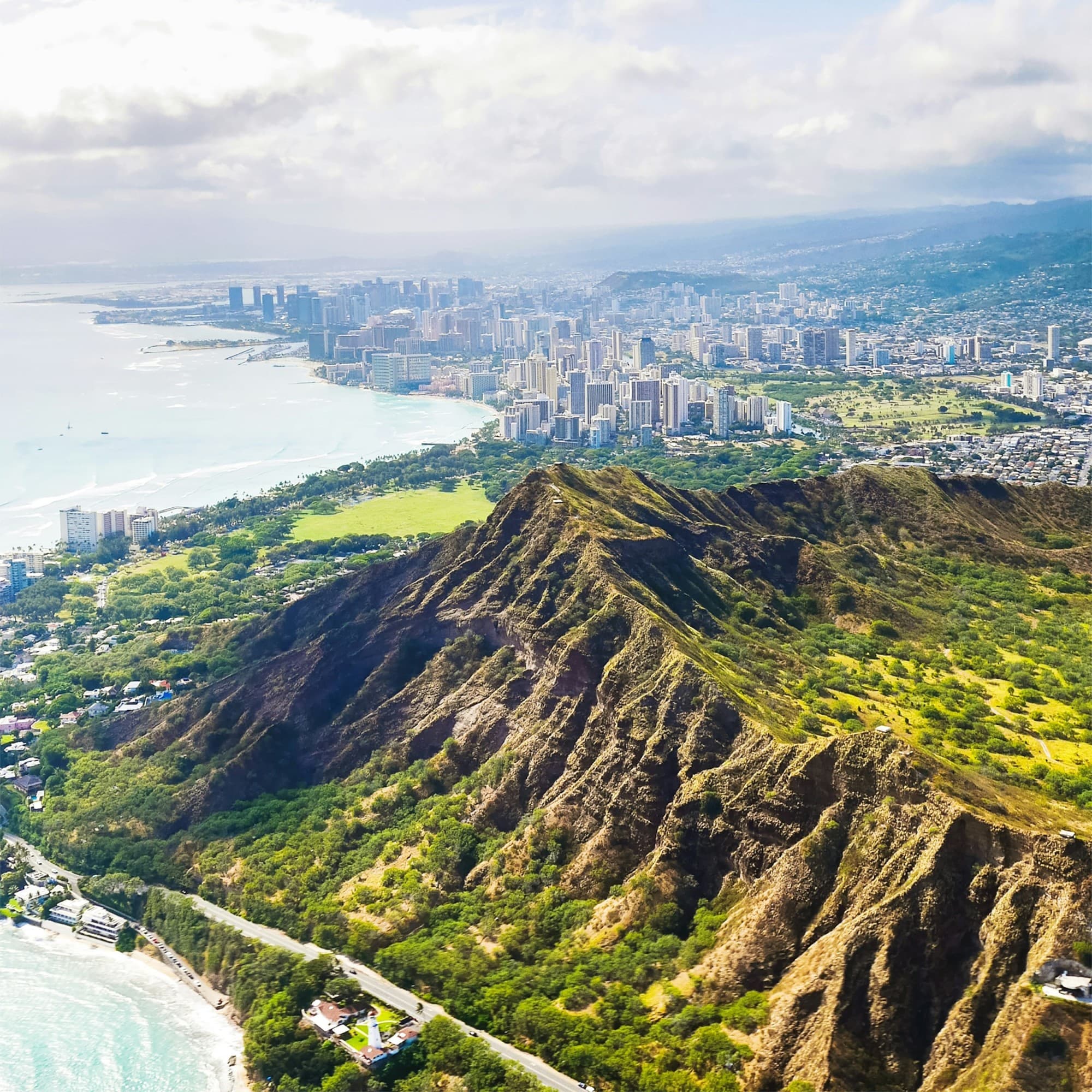
Hawaii's Top Issues in 2024: A Comprehensive Overview
As the 2024 election season looms closer, voters and political candidates in Hawaii will both be looking to the top issues in the Aloha State. In this guide, we’ll cover the top issues affecting Hawaii as a whole, as well as the major issues affecting the state’s largest cities:
Hawaii’s Top Statewide Issues in 2024
1. Economic Recovery and Diversification
Hawaii’s economy has been historically defined by tourism, so its exposure to the economic fallout of the pandemic has been particularly dire, causing statewide issues. The coronavirus in Hawaii has worsened the islands’ pre-existing economic concerns. Joblessness and business shut-downs had already been concerns prior to the COVID-19 pandemic.
Political candidates in Hawaii will need to come up with comprehensive plans in the support of local businesses, stimulating job creation as well as economic diversification. This could entail offering financial aid to affected businesses, improving infrastructure, or implementing labor development programs.
2. Housing Affordability
The Hawaii state housing market is one of the costliest among the American states, limiting access for many lower and middle-income residents. That problem is most acute in the big cities — Honolulu, for example — with median home prices well above the national average.
Political candidates in Hawaii will need to address housing supply shortages. Possible solutions may include incentives for the new construction of affordable homes for sale or rent, including public and mixed-income developments to aid in community development.
3. Climate Change and Sustainability
Located in the Pacific Ocean and along one of the most unique ecosystems on Earth, Hawaii is highly sensitive to climate change. Increased sea levels, as well as strong coastal erosion and altered patterns of weather, pose grave threats to the state's infrastructure, economy, and natural resources.
Because of this vulnerability, issues like reducing greenhouse gas emissions, increasing investments in renewable energy, and supporting conservation efforts will be at the front of mind for many Hawaii voters in 2024.
4. Educational Attainment and Workforce Development
Hawaii faces a challenge in improving educational outcomes for its residents and preparing its workforce for the demands of the 21st century economy. The islands’ geographic isolation, lower tax base, and difficulty retaining teachers all contribute to these concerns. For instance, Hawaii ranks 49th out of all 50 states for average teacher salaries. Insufficient academic standards and a lack of rigorous accountability further complicate the issue, adding to low student achievement.
5. Accessibility of Healthcare
Hawaii’s health care system challenges include accessibility, affordability, and quality. Many residents, especially those in rural areas, do not have access to sufficient health care services. The cost of healthcare remains high for many families and individuals.
Importantly, a disparity remains in the care available to Native Hawaiians and Pacific Islanders. Education levels, socioeconomic status, and insurance coverage all contribute to this disparity. For example, as of 2019, 9.1% of Native Hawaiian residents were uninsured, compared to 6.3% of the white population. Native Hawaiians also experience higher rates of infant mortality, diabetes, obesity, tuberculosis, and likelihood of suffering a stroke.
Top Issues in Hawaii’s Largest Cities
Top Issues in Honolulu
Urban Development and Infrastructure: Honolulu is growing quickly, leading to having difficulties in the fields of urban development and infrastructure.
Homelessness and Affordable Housing: Homelessness continues to be among Honolulu’s top issues. The 2023 Point in Time (PIT) Count revealed a 2% increase in the overall homeless population on O’ahu from 2022.
Public Safety and Crime Prevention: Crime rates have been increasing in Honolulu and remain a statewide challenge in Hawaii.
Tourism and Economic Diversification: A high percentage of the economy in Honolulu is driven by tourism, placing it at risk during economic lows.
Challenges in East Honolulu
Economic Growth and Job Expansion: Economic development and job growth remain important issues for East Honolulu in 2024.
Community Development and Revitalization: Revitalizing aging neighborhoods and providing needed infrastructure is important for East Honolulu.
Education and Workforce Development: East Honolulu awaits improved education results and the preparation of an enhanced workforce.
Affordable Housing and Homelessness: East Honolulu is characterized by the problem of a lack of affordable housing and growth of the unhoused population.
Environmental Sustainability and Climate Resilience: East Honolulu is concerned with environmental sustainability as well as climate resilience. Renewable energy, greenhouse gas emission mitigation, and conservation of natural resources are all key talking points.
Civic Priorities in Pearl City
Public Services and Infrastructure: Pearl City is committed to the improvement of public services and infrastructure.
Economic Development and Job Opportunities: Pearl City may want to pursue opportunities that encourage the development of new businesses and increase employment openings.
Education and Community Development: Pearl City is a community driven by education and community development. Early childhood education and community programs can encourage inclusion and engagement.
Affordable Housing and Homelessness: Affordable housing, support services for the unhoused, and homelessness prevention are concerns for Pearl City in 2024.
Environmental Sustainability and Climate Resilience: Like many other Hawaiian cities, Pearl City champions climate resilience and environmental sustainability.
Issues in Hilo
Job Growth and Sustainable Economic Development: Hilo has a key goal of diversifying the economy and encouraging sustainable development.
Tourism with Respect to Cultural Stability: While recognizing the importance of tourism, many in Hilo wish to preserve the city’s cultural heritage.
Education and Workforce Development: Hilo works to improve educational progress and prepare the next generation for productive employment.
Housing Affordability and Homelessness: Hilo struggles with providing affordable housing for its population and combating homelessness.
Environmental Sustainability and Climate Resilience: Hilo places high priority on environmental sustainability and climate resilience. Candidates may suggest ways in which greenhouse gas emissions can be reduced, the use of renewable energy sources can be increased, and how best to assure protection of the natural environment.
Concerns in Waipahu
Economic Development and Job Creation: Waipahu intends to encourage economic development and bring a higher number of employment opportunities to its citizens.
Community Development and Education: Waipahu values education and community development investments.
Housing Affordability and Homelessness: Waipahu is grappling with providing affordable housing as well as solving the issue of homelessness.
Environmental Sustainability and Climate Resiliency: A commitment to environmental sustainability and climate resilience is important in Waipahu. Candidates may want to lay out policies that will encourage the use of renewable energy, reduction of greenhouse gas emissions, and protection of the natural environment.
Get Involved in Hawaii Politics
Ready to make a difference in your community and help address the top issues facing Hawaii in 2024? There are a number of ways to get involved. Here are a few to get you started:
Make sure you’re registered to vote in the 2024 elections, and then make a plan to participate on election day.
Consider running for local office to represent the needs of your community.
Volunteer with a local organization or other group working to make a positive difference in Hawaii.
However you choose to get involved, remember that your voice matters!
Photo by Cosmin Serban on Unsplash
